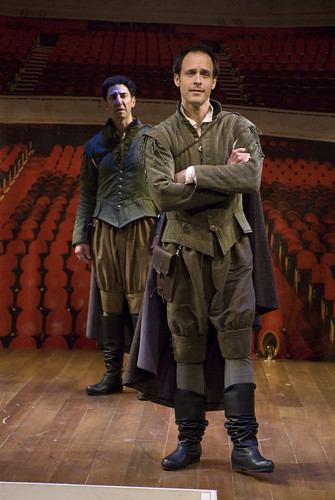
Plays It is believed that Shakespeare wrote 38 plays in total between 15. Only Horatio survives – and Fortinbras, of course, who arrives to take over the kingdom.Įverything in Hamlet appears to have been for nothing, too, and it is this truth about the nature of Shakespeare’s tragedy which Stoppard’s scintillatingly clever comedy brings so brilliantly into focus. If Rosencrantz and Guildenstern are ultimately disposable, what about the royal line of Denmark? Stoppard’s play ends much as Shakespeare’s does, with much of the court dead at each other’s hands. They are, in a sense, already dead.īut then the same is true of Hamlet, Claudius, Gertrude, Laertes, and Polonius. The fact that the title of Stoppard’s play condemns Rosencrantz and Guildenstern to death before the play has even begun – in a line taken from Shakespeare’s play – is oddly fitting, not just because it signals the various textual echoes of Shakespeare’s original found in Stoppard’s own play but because it overlays everything that the two characters do with a sense of futility. The modern world is at once absurdly tedious and repetitive and worryingly unpredictable, as the events of the Second World War had shown perhaps more clearly than ever before. In both plays, the central pair of characters have to occupy themselves while waiting for something to happen: Rosencrantz and Guildenstern are waiting to be summoned and then waiting to be given their orders, while Vladimir and Estragon are waiting for the elusive Godot, who never arrives. 
We have analysed Beckett’s remarkable play in a separate post, but the key similarities between Beckett’s and Stoppard’s two post-war visions lie in the rather helpless passivity of the two central characters in each play, the emphasis on repetition (calling to mind Camus’ absurdist essay, ‘ The Myth of Sisyphus’), and the philosophical emphasis in both. But it almost certainly would never have been written in Samuel Beckett had never written Waiting for Godot, the post-war play which did more than any other, perhaps, to take theatre in a new direction.


Rosencrantz and Guildenstern Are Dead could not have been written, of course, without Hamlet. They were ‘sent for’ by Claudius and Gertrude, who want to find out what’s up with Hamlet.
-screenshot.jpg)
And like Hamlet himself – thrown into a role, that of avenging son, which he seems reluctant to adopt – Rosencrantz and Guildenstern are characters who appear not to be in control of their own destinies.





-screenshot.jpg)


 0 kommentar(er)
0 kommentar(er)
